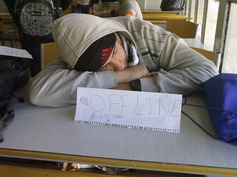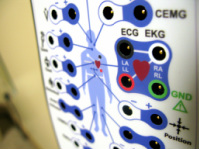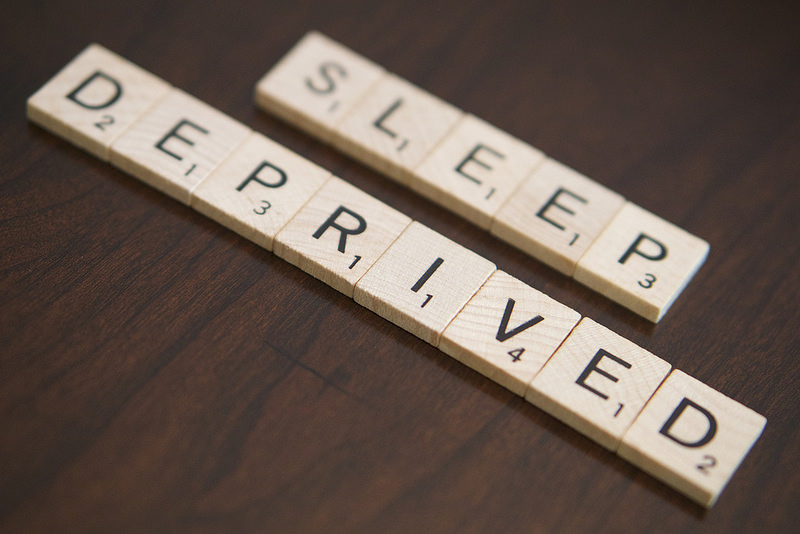SLEEP APNEA

In part 1, I discussed the importance of sleep. Anything which disturbs normal sleep results in numerous adverse effects. Fatigue is one of the first and most easily recognized symptoms of sleep deprivation. With chronic sleep deprivation, however, individuals often fail to realize that they are fatigued. This feeling becomes their new "normal" and is only realized after they experience proper restorative sleep again. There are other symptoms which result from sleep deprivation. These include:
As noted previously, sleep deprivation has been implicated as a causative or contributing factor in numerous incidents and accidents in the workplace, on the road and in the air. Sleep apnea is perhaps the most common medical (as opposed to self imposed) cause of sleep deprivation and, since it is treatable, it behooves us to screen for this condition in appropriate circumstances.
- Irritability
- Short attention span
- Poor concentration, memory and difficulty thinking
- Headaches
- Daytime sleepiness
As noted previously, sleep deprivation has been implicated as a causative or contributing factor in numerous incidents and accidents in the workplace, on the road and in the air. Sleep apnea is perhaps the most common medical (as opposed to self imposed) cause of sleep deprivation and, since it is treatable, it behooves us to screen for this condition in appropriate circumstances.
WHAT IS SLEEP APNEA?
Sleep apnea refers to a condition in which a sleeping individual stops breathing. Eventually, due to physiologic factors such as a drop in the oxygen saturation of the blood, the brain rouses the individual (usually only partially) and breathing resumes. The severity of the sleep apnea is gauged by how often these episodes occur, how long each one lasts, how much the blood oxygen level drops and other factors. In severe cases, this may occur hundreds of times per night leading to extremely fragmented and abnormal, non-restorative sleep. This results in a state of chronic fatigue along with all the medical issues described in part 1.
There are 3 types of sleep apnea: OBSTRUCTIVE, CENTRAL AND COMPLEX.
OBSTRUCTIVE SLEEP APNEA (OSA) is the most common type of sleep apnea. It describes the obstruction of the airway by the tongue and soft palate during the deeper stages of sleep in susceptible individuals.
CENTRAL SLEEP APNEA is due to the brain failing to signal breathing, even though the airway is open.
COMPLEX SLEEP APNEA is a combination of the above types.
There are 3 types of sleep apnea: OBSTRUCTIVE, CENTRAL AND COMPLEX.
OBSTRUCTIVE SLEEP APNEA (OSA) is the most common type of sleep apnea. It describes the obstruction of the airway by the tongue and soft palate during the deeper stages of sleep in susceptible individuals.
CENTRAL SLEEP APNEA is due to the brain failing to signal breathing, even though the airway is open.
COMPLEX SLEEP APNEA is a combination of the above types.
DIAGNOSING SLEEP APNEA

The best method available for diagnosing sleep apnea remains a sleep study in a sleep lab. This study not only diagnoses sleep apnea, but also diagnoses the type and severity as well as the impact on sleep quality and degree of deoxygenation of the blood during episodes. Heart rate and rhythm are also recorded along with an EEG, EKG and any abnormal limb movements.
WHO SHOULD HAVE A SLEEP STUDY?
The following signs and symptoms may be related to non-restorative sleep due to sleep apnea. Anyone displaying one or more to any significant degree should have a sleep study.
- Witnessed severe snoring and / or interruption of breathing in a sleeping individual
- Fatigue, sleepiness or falling asleep during the day
- High Blood Pressure which is not easily controlled, and / or other heart or cardiovascular problems
Although being overweight or obese (BMI over 35), or having a large neck circumference (16” or more in females and 17” or more in males) do not predict sleep apnea in and of themselves, they are often associated with sleep apnea particularly in individuals with any of the above listed signs or symptoms.
TREATMENT OF SLEEP APNEA
There are several methods available to successfully treat sleep apnea. Not all are effective in every individual. These include oral appliances, CPAP (continuous positive airway pressure) machines, Surgery and others. In all cases, weight loss is important if the individual is overweight. In many cases, no other treatment is required.
Any individual who has suffered significant sleep apnea and been successfully treated will describe how good it was to once again feel “normal” and energetic. In addition, many medical problems such as high blood pressure resolve with no further need for medication.
Any individual who has suffered significant sleep apnea and been successfully treated will describe how good it was to once again feel “normal” and energetic. In addition, many medical problems such as high blood pressure resolve with no further need for medication.
All of us want to sleep well, feel well, and function at our best. Individuals who have safety-sensitive occupations upon which the welfare of others depends (such as pilots, air traffic controllers, etc.) have a moral, ethical and legal obligation to ensure they are fit to perform their duties. This concept is often referred to as "Self-assessment". I would urge any individual who believes they may suffer from sleep apnea to seek the advice of a sleep specialist.
For further information click here.
Sleep well, be well.
E.A. Mastrangelo, M.D.
For further information click here.
Sleep well, be well.
E.A. Mastrangelo, M.D.

 RSS Feed
RSS Feed